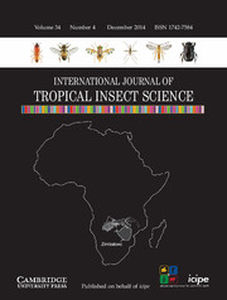Article contents
Studies on the biology of African ticks: A review of the past and present with guides for the future
Published online by Cambridge University Press: 19 September 2011
Abstract
A comprehensive review of the major investigations on the biology of African ixodid ticks is made with a view to identifying weaknesses in the life systems which may be employed as control components in an integrated package. The possibility of breeding ticks with low oviposition capacities needs to be confirmed and further studied with respect to the economically important ticks in Africa. Studies on the membrane or artificial feeding of ixodid ticks must be conclusive and more importantly the disease transmission abilities of these membrane fed ticks is worthy of being looked into. Additionally, the hybrid status of both Genus Rhipicephalus and Genus Amblyomma ticks should be studied. Efforts must also be made to intensify research on selecting resistant host breeds to multihost ticks, R. appendiculatus and A. variegatum, among the very many cattle breeds present in Africa.
Resumé
Une revue complète des principaux champs d'investigations dans la biologie des tiques ixodides d'Afrique a été faite avec pour objectifs de faire ressortir les points faibles du cycle biologique des tiques sur lesquels peuvent être basés la lutte intégrée contre les tiques. Il est possible d'élever des tiques ayant des capacités d'oviposition faible. Les contours de cette possibilité en ce qui concerne les tiques d'Afrique ayant une importance économique doivent être mieux cernés par des études ultérieures. Des études sur l'alimentation artificielle des tiques sur membrane doivent être poursuivies aussi s'avère t-il nécessaire de chercher à étudier les capacités de transmission de “virus” par les tiques nourries sur membrane.
Keywords
- Type
- Tick Biology
- Information
- International Journal of Tropical Insect Science , Volume 13 , Special Issue 4: Status and Recent Advances in Tick Management in Africa , August 1992 , pp. 569 - 577
- Copyright
- Copyright © ICIPE 1992
References
REFERENCES
- 1
- Cited by


